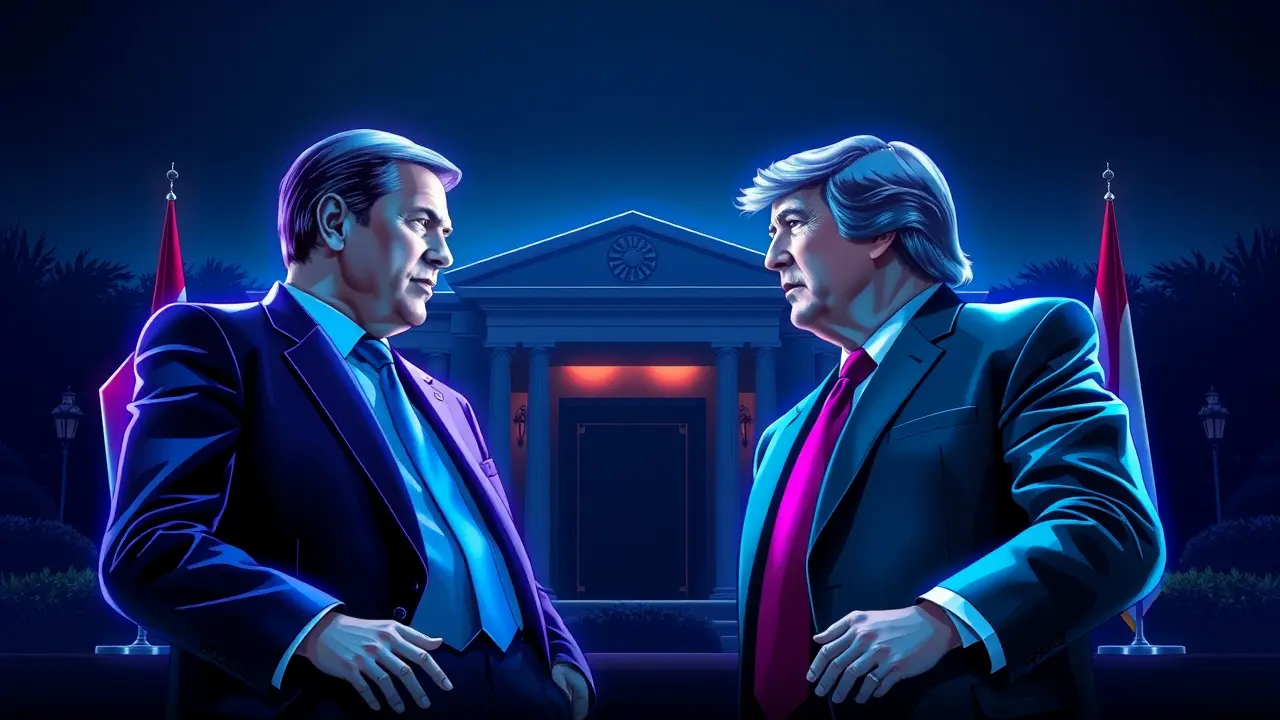
PoliticsdiplomacyDiplomatic Visits
Hungarian PM Orban's Complex Meeting with Trump.
RO
Robert Hayes
11 hours ago7 min read1 comments
The meeting between Hungarian Prime Minister Viktor Orbán and former U. S.President Donald Trump at Mar-a-Lago was, on its surface, a diplomatic triumph for the Hungarian leader, a carefully staged photo opportunity affirming his place within the orbit of a man who could once again command the world's most powerful office. Yet, to any seasoned political analyst, the full picture is far more complex, revealing a strategic gambit steeped in the long history of strongman politics and the shifting allegiances of the post-liberal order.Orbán, Europe's longest-serving prime minister and a self-proclaimed champion of 'illiberal democracy,' has long sought a powerful patron beyond the European Union, whose institutions he has systematically challenged. His pilgrimage to Mar-a-Lago was not merely a courtesy call; it was a deliberate act of geopolitical positioning, akin to a vassal paying homage to a returning king, designed to signal his alignment with a potential U.S. administration that would fundamentally oppose the foreign policy objectives of the current Biden White House.The optics were potent: a European head of government conferring with a candidate who openly admires Orbán's hardline stance on immigration and national sovereignty, thereby granting Trump a veneer of international statesmanship while offering Orbán a powerful counterweight to Brussels. However, beneath this display of mutual admiration lies a web of intricate calculations.For Trump, Orbán is a useful ally in his narrative of a global populist uprising against the established order, a validation of his own political style. For Orbán, the benefits are more tangible but also fraught with risk.While a Trump victory in November could isolate the EU and empower Orbán's faction within the bloc, it also ties Hungary's fortunes to the volatile trajectory of American domestic politics. The meeting conspicuously avoided a visit to the White House, a deliberate snub that underscores the deep ideological rift in the Transatlantic alliance.One must consider the historical precedent: smaller nations have often sought powerful protectors, but such alliances can become gilded cages. Orbán's bet on Trump is a high-stakes wager that the center of gravity in Western politics is permanently shifting away from multilateralism and toward a new era of nationalist, transactional relationships.The consequences are profound, not just for Hungary's place in Europe, but for the very cohesion of NATO and the EU's eastern flank, particularly as the war in Ukraine continues. Expert commentary from European capitals reveals a mixture of alarm and resignation; Orbán's maneuver is seen as a masterstroke of realpolitik by some and a dangerous flirtation with the erosion of democratic norms by others. Ultimately, this meeting was less about immediate policy and more about forging a symbol—a testament to the enduring allure of strong leadership and the complex, often perilous, dance of ambition on the world stage.
#featured
#Viktor Orban
#Donald Trump
#Hungary
#US relations
#diplomacy
#foreign policy
#political meeting
Stay Informed. Act Smarter.
Get weekly highlights, major headlines, and expert insights — then put your knowledge to work in our live prediction markets.
Related News
© 2025 Outpoll Service LTD. All rights reserved.














